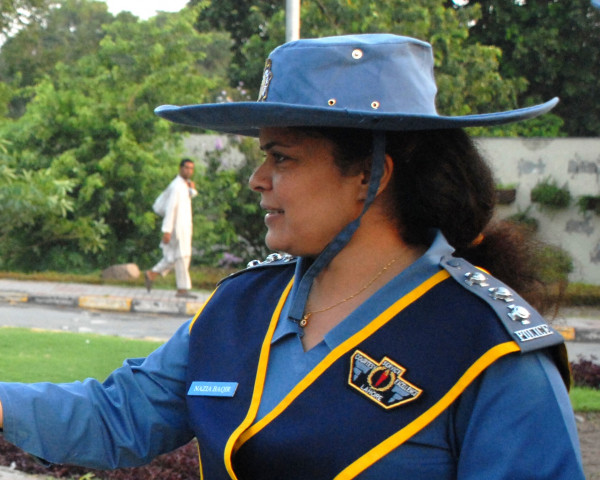Workplace harassment: Female wardens fade from view in chauvinist Lahore
None of 140 female traffic wardens serve on the roads any longer.

Workplace harassment: Female wardens fade from view in chauvinist Lahore
On April 3, 2008, eight female traffic wardens on heavy bikes patrolled the city’s major roads as they became the first women to work as traffic cops. Today, the traffic police has a total of 140 female wardens, but none have regular assignments to work on the roads.
Wardens and their bosses said the women had been driven away for various reasons, but largely because of harassment by men and social conventions that discourage women from being out on the streets.
DIG Ghulam Mehmood Dogar, who was chief traffic officer (CTO) when the first female wardens were inducted, said the idea had been that commuters would behave better if they had to deal with women wardens.
However, many wardens were driven away from traffic duty by ugly incidents of harassment. One warden told The Express Tribune on the condition of anonymity that she soon became used to being stared at by men in public, but was reduced to tears after one incident on The Mall when she was groped by a man on a motorbike.
“I cried at the CTO’s office and he ordered me transferred to the Ticketing Branch. The same thing happened to several other wardens,” she said.
CTO Syed Ahmad Mobin said that the force had 140 female wardens and all served in offices. Many served in positions where they had to deal with the public, such as licensing, ticketing and education, but not in traffic. He said their families didn’t want them working on the roads.
“Society is to blame,” he said. Asked if he thought it fair that female wardens didn’t have to do road duty, he said: “If you want women on the force, you have to be sensitive to their problems.”
Salim, a traffic warden serving on the Ring Road, felt otherwise. He said it was true that the women were subjected to harassment and made to feel uncomfortable by some members of the public, but the main reason they didn’t want to handle traffic on the roads was because of the toughness of that job. He said he knew of only two female wardens who were doing traffic duty.
DIG Dogar said that during his time as CTO, some people had been arrested for harassing female wardens and most of them remained on traffic duty during his tenure. He said having women serve as wardens was important, as it sent the message to the public that women could work in jobs traditionally considered for men only. It also made Lahore look more modern, he said.
Balochistan Additional IG Ghalib Bundaisha, who worked with DIG Dogar on introducing the female wardens, said that women on the force improved the image of law-enforcement agencies and he was trying to set up a female traffic squad and patrolling squad in Quetta over the next couple of months.
He said that shortly after the female traffic wardens were introduced in Lahore, they were sent to schools as part of an awareness campaign. Dozens of female students from these schools had asked them where they could get training to drive motorbikes.
Bushra Khalid, the executive director of Women in Struggle for Empowerment (WISE), said that having women serving visibly in jobs such as traffic wardens was an important step towards making Pakistani society and public life more friendly to women. She said that the female wardens should serve on the roads and any complaints of eve teasing should be addressed under the Protection Against Harassment at the Workplace Bill and Section 509 of the Pakistan Penal Code.
Published in The Express Tribune, February 19th, 2012.



















COMMENTS
Comments are moderated and generally will be posted if they are on-topic and not abusive.
For more information, please see our Comments FAQ